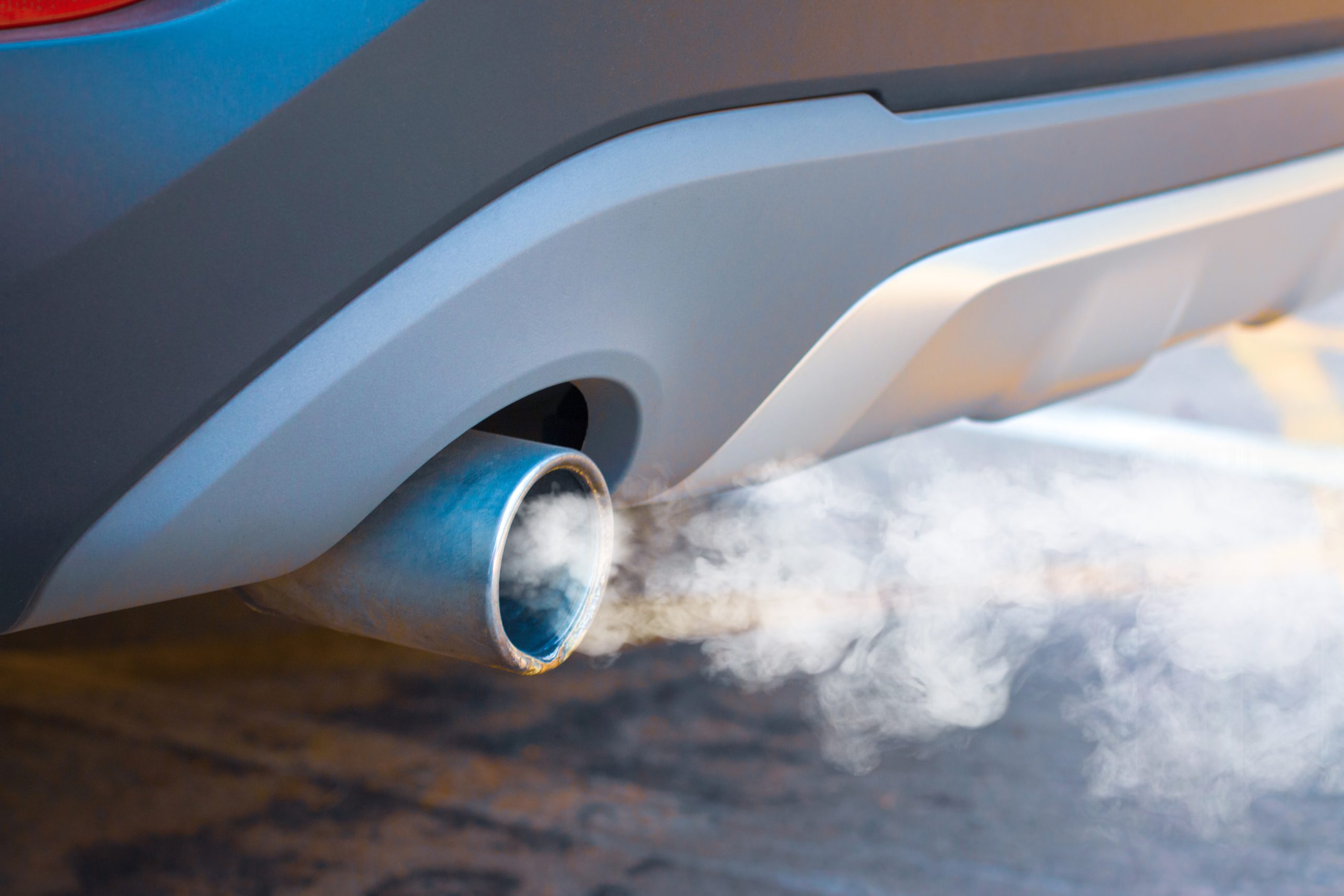If you’ve ever wondered, is exhaust poisonous? — the answer is yes, especially in high concentrations or enclosed spaces. For RVers, that’s a critical safety issue. Exhaust from gasoline or diesel engines may be a normal byproduct of running your motorhome, but if it’s not properly managed, it can put your health and your travel plans at serious risk.
A study by MIT found that vehicle-related air pollution contributes to over 50,000 premature deaths in the U.S. each year. And hundreds more suffer from carbon monoxide poisoning annually — sometimes caused by engine exhaust seeping into RVs or accumulating in garages or storage areas.
Understanding what’s in RV exhaust, why it’s dangerous, and how to protect yourself can help you stay safe — and keep your rig in road-ready shape.
What Causes RV Exhaust?
RV exhaust is created when your engine burns fuel to generate power. This combustion process produces gases and particulates that are funneled through the RV’s exhaust system — which includes components like the manifold, catalytic converter, muffler, and tailpipe. These parts reduce and redirect emissions, but still allow some harmful substances into the air.
What’s in RV Exhaust?
RV exhaust contains several potentially hazardous elements:
- Carbon Monoxide (CO): A deadly, odorless gas that can displace oxygen in your bloodstream and cause sudden poisoning.
- Nitrogen Oxides (NOx): Lung irritants that also contribute to acid rain and smog.
- Hydrocarbons (HC): Unburned fuel that worsens air pollution and can be toxic when inhaled.
- Particulate Matter (PM): Fine particles that can reach deep into the lungs and are linked to cancer and heart disease.
- Carbon Dioxide (CO₂): A greenhouse gas that contributes to climate change.
- Sulfur Dioxide (SO₂): Common in diesel exhaust and known to cause respiratory irritation.
How Dangerous Is RV Exhaust?
The danger level depends on exposure time, concentration, and ventilation. Outdoors, a brief whiff isn’t likely to harm you. But indoors — or in small, enclosed RV spaces — exhaust fumes can become life-threatening quickly. This is especially true with carbon monoxide, which can cause fatal poisoning in minutes without any warning signs.
Short-Term Symptoms Include:
- Headaches
- Nausea or dizziness
- Shortness of breath
- Eye, nose, or throat irritation
- Confusion or loss of consciousness
Long-Term Exposure Can Lead To:
- Asthma or chronic bronchitis
- Heart disease
- Cancer (linked to certain hydrocarbons and particulates)
- Neurological damage
- Increased mortality rates
How to Stay Safe from RV Exhaust
To minimize risk, follow these safety practices:
- Never Run Your RV in Enclosed Areas: Even a few minutes in a garage or under a carport can allow carbon monoxide to accumulate. Always ensure proper ventilation.
- Inspect and Maintain Your Exhaust System: Cracks or leaks can allow fumes into the cabin. Have your system inspected regularly, especially before long trips.
- Use Cabin Air Recirculation When Needed: In heavy traffic or polluted areas, recirculating your cabin air can reduce outside exposure.
- Avoid Extended Idling: Don’t leave your RV idling unnecessarily, especially near people or buildings. It’s harmful to your health, fuel efficiency, and the planet.
- Install a Carbon Monoxide Detector: Every RV should have a working CO alarm. It’s a small investment that could save your life.
Can RV Exhaust Affect Insurance?
While RV insurance policies don’t directly penalize you for emissions, exhaust issues can still impact your coverage in a few ways:
- Poor Maintenance Claims: If an exhaust leak leads to an injury or accident, your insurer may reduce or deny a claim due to negligence.
- Medical Coverage: If you or your passengers are injured due to CO poisoning, your medical payments or personal injury protection may apply.
- Registration & Compliance: In some states, failing an emissions test may delay registration, which can affect your ability to maintain coverage.
- Custom Exhaust Mods: If you install aftermarket exhaust parts, let your insurer know — you may need a policy endorsement to stay fully covered.
So, Is Exhaust Poisonous?
Yes — RV exhaust is absolutely poisonous under the wrong conditions. While it’s a routine byproduct of engine operation, failing to manage it properly can lead to serious health consequences, and even death. That’s why awareness, maintenance, and smart safety habits are essential for every RVer.
At Happy Camper Insurance, we don’t just protect your RV — we help protect the people inside it. Whether you’re a weekend warrior or a full-time traveler, our RV insurance options are built for your lifestyle.Call Happy Camper Insurance today to get a personalized RV insurance quote — and enjoy your adventures knowing you’re protected inside and out.


